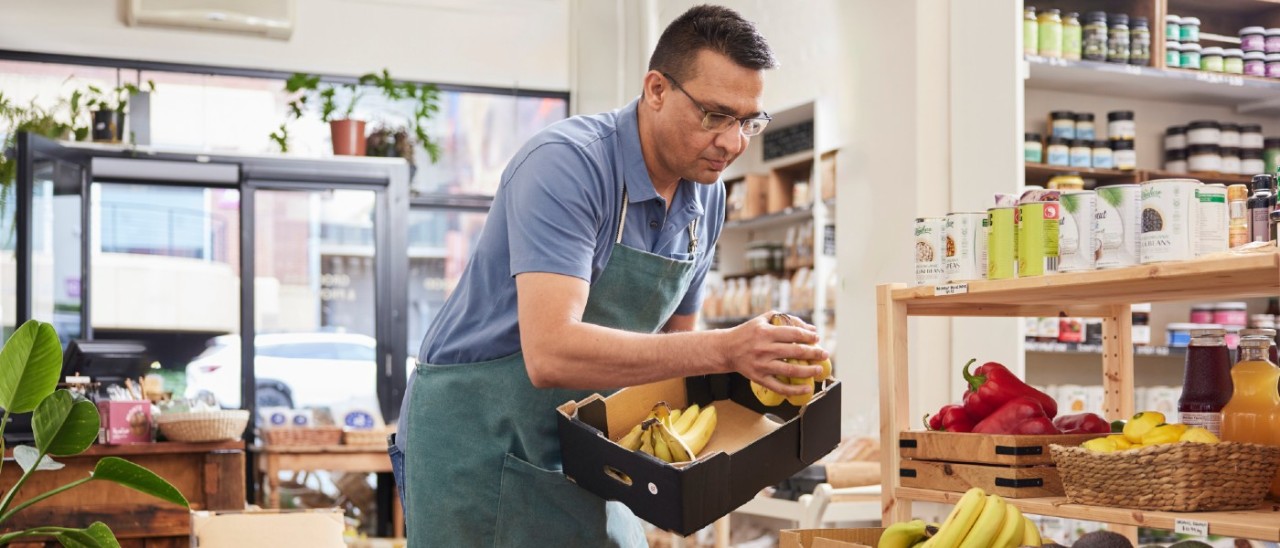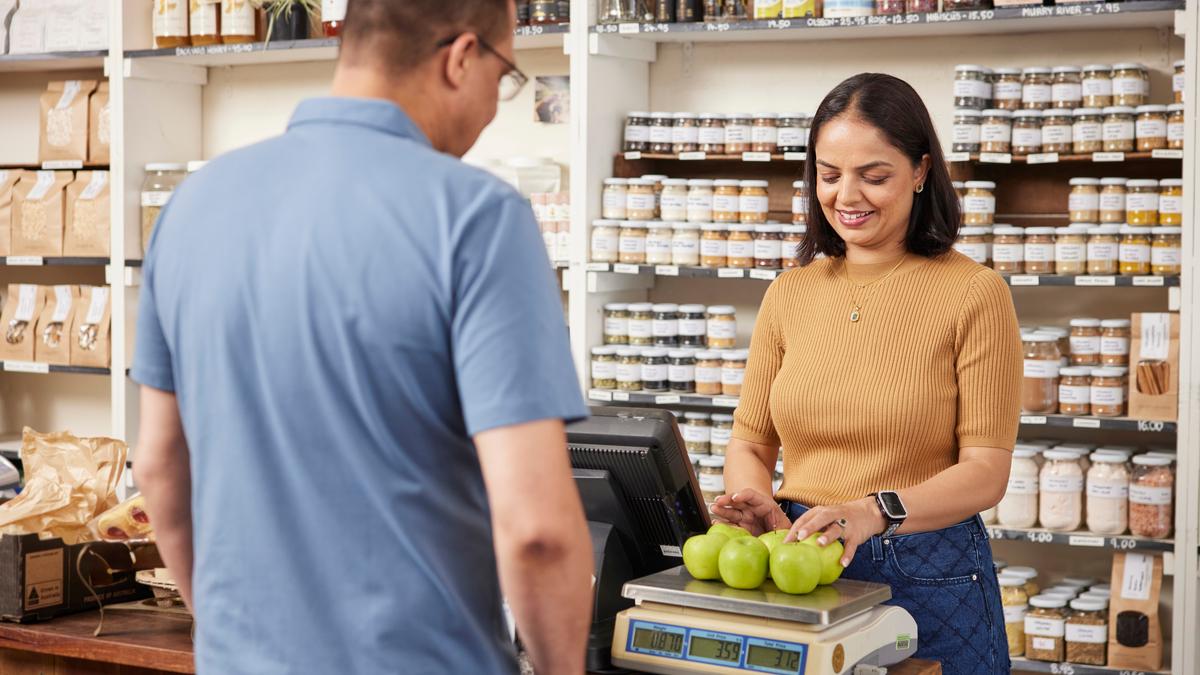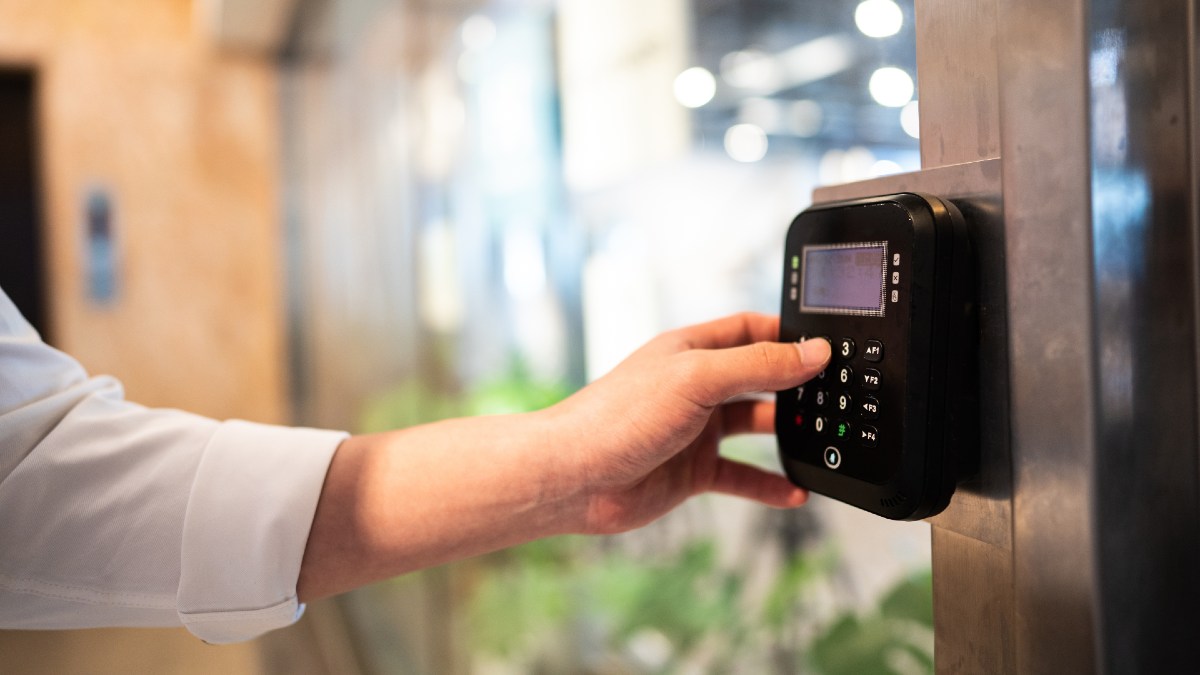Understand the benefits and rules of a shared or joint insurance policy and what to do if you need help or have concerns about your privacy.
How small businesses can protect against theft

Investing in theft prevention can help save your business from costly losses. Here are some strategies that may help small business owners reduce their vulnerability.
Running a small business is a labour of love. Whether you’re brewing coffee at dawn, managing stock behind the scenes, or providing services to loyal customers, there’s a lot to juggle.
But one challenge that often flies under the radar is theft, which can have devastating consequences if not managed carefully.
Crime Statistics Agency data shows 40,675 incidences of retail theft in Victoria for the year ending March 2025, a 39 per cent increase on the previous year.
Of those offences, 8,343 occurred in shopping complexes, 8,083 in supermarkets, 11,449 in other retail stores, along with places as diverse as pharmacists, restaurants, milkbars, service stations and jewellers.
The good news is that there are effective ways to help reduce the risk of theft from your business. From improving physical security to fostering a vigilant team culture, here’s how small businesses across Victoria can protect themselves from theft.
Read more small business guides
How to help prevent theft at your small business
Understand the risk of theft
Theft is more common than many business owners realise. According to data from the Australian Retailers Association, shoplifting and employee theft cost businesses billions each year. For small business owners, even a single incident can create financial strain, impact morale, and erode customer trust.
Theft takes many forms, including:
- Shoplifting - the most visible form, where customers steal items
- Employee theft - from taking stock to misusing company funds
- Burglary - break-ins outside business hours
- Cyber theft - digital fraud or stealing sensitive customer information
- Vendor fraud - dishonest suppliers delivering less or charging more.
Knowing the different threats is the first step in developing a security strategy that works for your business.

Small business theft can take many forms, from burglary to employee dishonesty.
Undertake a security audit
Before you install cameras or change policies, assess your business's current vulnerabilities. A security audit helps you understand where theft might occur and how to prevent it. You can conduct a DIY audit or bring in a professional security consultant.
Look at areas such as:
- entry and exit points
- visibility of merchandise or equipment
- storage areas
- cash handling procedures
- digital security, including Wi-Fi and access to sensitive files
- employee access to stock and systems.
A well-rounded audit identifies both physical and digital vulnerabilities, providing a roadmap for improvement.
Protect the premises
There’s more to making a small business safe and secure than locking the front door at the end of the trading day. In fact, there’s plenty of simple ways to discourage criminals, from adopting technological fixes to installing physical barriers.
Consider:
- Installing CCTV cameras - position them near entryways, behind the counter, and in blind spots. Make sure signage clearly warns people that surveillance is in place. This not only helps deter theft, but can also assist in identifying offenders.
- Upgrading locks - invest in commercial-grade locks for all access points. If you rent a space, work with the landlord to improve door and window security. It’s also wise to keep track of which third parties, such as cleaners, have copies of keys. Regularly updating any codes to locks adds another layer of security, ensuring that only current staff and contractors can enter.
- Using safes - secure safes can protect cash and important documents after hours. Choose one that’s fireproof and bolted down.
- Installing alarm systems - modern alarms can alert you (or a monitoring company) if someone breaks in. Many can even be connected to your smartphone.
- Upgrading lighting - keep your business's exterior well-lit to discourage after-hours break-ins. Motion sensor lights are energy-efficient and effective.
- Installing bollards - bollards can help stop unwanted vehicles from carrying off more goods and potentially damaging buildings.
These upgrades don’t have to cost a fortune. Even modest improvements can have a big impact on security.

Keep code locks updated for increased business security. Image: Getty
Reduce the reward
Take steps to reduce what thieves can actually get their hands on if they do break in to reduce your loss.
Removing valuables from plain sight reduces the temptation for would-be thieves to break in. Putting up signs stating that no valuables or cash are kept on the premise also cuts down the motivation.
Small businesses should limit cash in registers by depositing regularly into a bank. Avoid keeping large sums onsite overnight. Encouraging tap-and-go or mobile payments from customers not only improves efficiency, but also reduces the temptation for cash theft from would-be burglars.
Stay cyber-safe
As more small businesses move online or store data digitally, cyber theft is on the rise. Digital criminals don’t need to step foot in your shop to cause damage.
Cyber security might sound complex, but there are simple, affordable steps you can take to protect your business, such as:
- Using strong passwords - encourage staff to use unique, strong passwords and to change them regularly
- Setting PINs on mobile devices - personal identification numbers (PINs) on mobile devices such as smartphones can help prevent their misuse
- Enabling two-factor authentication (2FA) - this adds an extra layer of protection to your accounts and POS systems
- Securing your Wi-Fi - use encrypted, password-protected networks and never leave your router settings on default
- Backing up regularly - keep critical business data backed up on a secure, off-site server or via cloud storage
- Installing antivirus software - invest in a quality antivirus software package and ensure that it runs scans regularly
- Regularly updating - keeping your overall software (and your antivirus software) updated means that it has the best chance of catching malware and other problems
- Look into online anti-scam resources - Scamwatch, by the Australian Competition and Consumer Commission (ACCC), provides up-to-date alerts on scams targeting Australians, including phishing, invoice fraud, and business email compromise. It’s especially useful for small businesses to recognise emerging threats. The Australian Cyber Security Centre (ACSC) offers threat alerts, step-by-step guides, and tailored advice for small businesses. Their “Small Business Cyber Security Guide” is a must-read.
Invest in business insurance
Business insurance can help protect you from financial loss in the case of burglary. It could also cover incidents such as fires or employee theft. Speak with your insurance provider to ensure you have the right coverage for your business.
Remember to always document any incidents, along with keeping accurate records of your stock and sales. This can help when processing claims or proving loss. You should also always file a police report for break-ins or significant losses to help build evidence for any insurance claims.

Forming a community with other business owners can help keep you informed. Image: Getty
Be part of the community
Bambi Gordon, CEO of Neighbourhood Watch Victoria, says that small businesses working together can be a powerful crime-fighting tool. Being part of a supportive community increases vigilance and reduces the risk of repeat offences.
"Being part of the community sounds simple, but it’s actually a great strategy for small businesses to employ," she says. "Neighbourhood Watch Victoria recommends reaching out to your business neighbours in person or over social media, like a private Facebook group or WhatsApp chat, to keep each other informed of what’s happening.
"Straightforward things such as reporting suspicious behaviour at your own small business and those nearby is also important. The Neighbourhood Watch model has shown the value of simply watching out for each other – and it applies equally to small businesses."
The information provided is general advice only. Before making any decisions please consider your own circumstances and the Product Disclosure Statement and Target Market Determinations. For copies, visit racv.com.au. As a referrer, RACV Insurance Services Pty Ltd AFS Licence No. 230039 receives commission for each policy sold or renewed. Product(s) issued by Insurance Australia Ltd, ABN 11 000 016 722, AFS Licence No. 227681.


